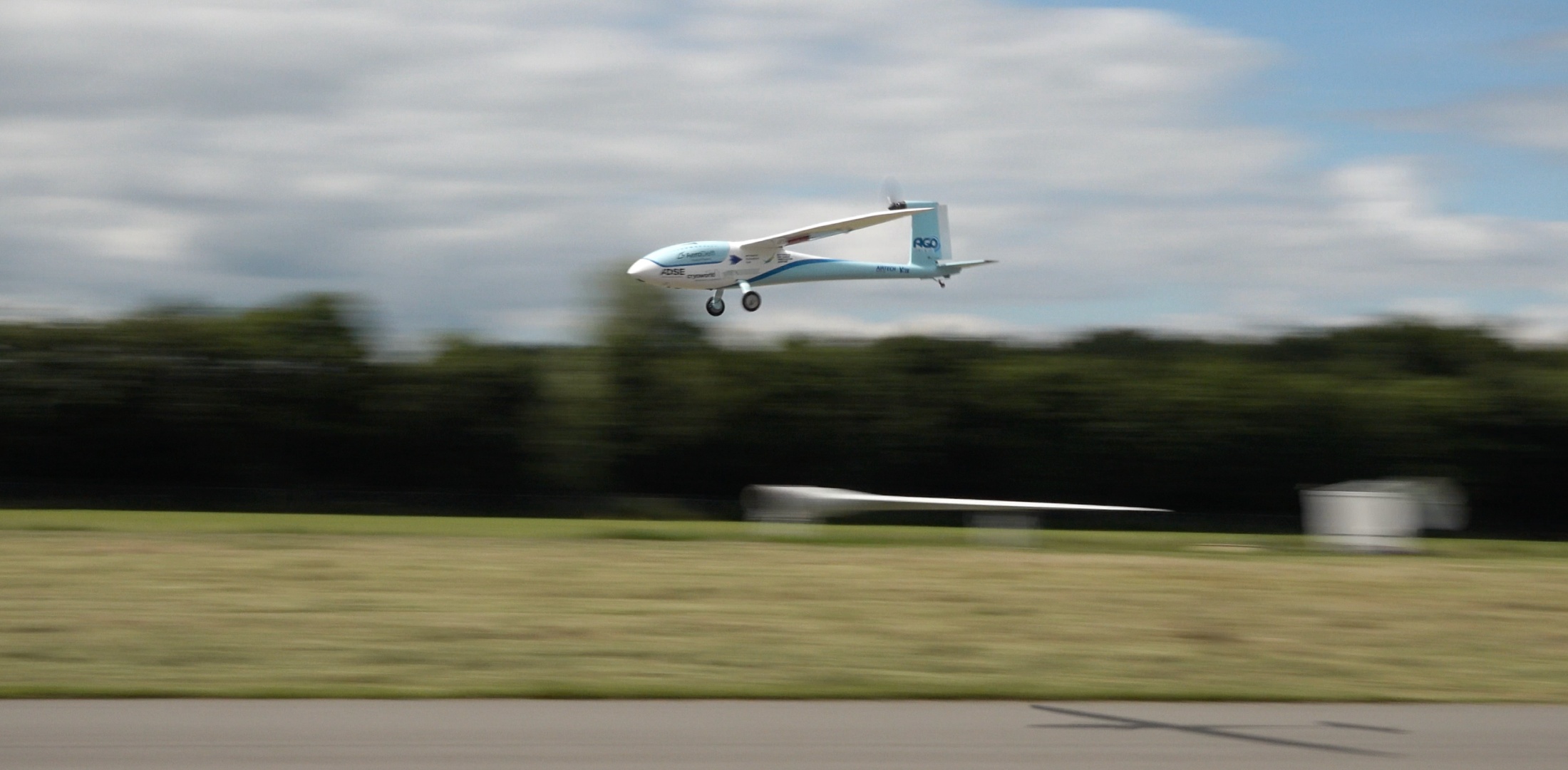Click Here to View This Page on Production Frontend
Click Here to Export Node Content
Click Here to View Printer-Friendly Version (Raw Backend)
Note: front-end display has links to styled print versions.
Content Node ID: 419623
A team of students at Delft University of Technology in the Netherlands has successfully flown the first prototype of its Phoenix hydrogen-powered aircraft.
The AeroDelft student team aims to promote the use of liquid hydrogen as an alternative to conventional aviation fuels by developing two hydrogen-powered aircraft: the remotely piloted Phoenix Prototype and the two-seat Phoenix Full Scale, which the team revealed today with a taxi run during the annual AeroDelft Summer Event at Breda International Airport in the Netherlands.
Initial flights of the uncrewed prototype will be powered by electric batteries, but the team plans to shift to gaseous hydrogen—which is easier to work with than liquid hydrogen—with the goal of developing a piloted, liquid hydrogen-powered aircraft by 2025.
The Phoenix Prototype, a 1:3 scale model of the aircraft, took to the skies for the first time on June 14, the AeroDelft team announced today. The battery-powered prototype, which looks like a glider, flew for 14 minutes and reached an altitude of 350 meters (1,150 feet), AeroDelft’s chief prototype testing engineer Gerben Drijfhout told FutureFlight. Data from this test flight will pave the way for the AeroDelft team to modify the aircraft to run on hydrogen power, he said.
The prototype has a wingspan of six meters (20 feet) and weighs 40 kilograms (88 pounds). Its larger counterpart, the Phoenix Full Scale, has a wingspan of 18 meters (59 feet) and weighs 1,100 kilograms (2,400 pounds). The students created this two-seater aircraft using a kit-built Sling 4 composite airplane.
“In the coming months, we will perform more flights on batteries to gather even more data and get comfortable with the aircraft," Drijfhout said. "A gaseous hydrogen flight is then scheduled for 2023.” AeroDelft aims to fly the first full-scale version of its aircraft with a pilot on board in 2024, and that test flight will use hydrogen gas, Drijfhout added. Liquid hydrogen-powered flights of the full-size model are expected to begin in 2025.
“We will first attempt a flight on gaseous hydrogen to prove our hybrid powertrain is airworthy,” Drijfhout said. “The liquid hydrogen components will continue iterative development to then be proven on the ground before being integrated into the aircraft.”
Founded in 2018, the AeroDelft team consists of more than 50 students from around the world. The project’s sponsors include the Royal Netherlands Aerospace Center (NLR), Frisian Air, Akzo Nobel, Arena Aviation Capital, and TNO.
